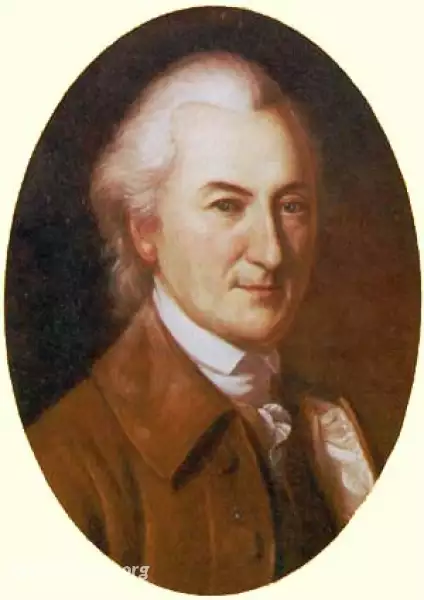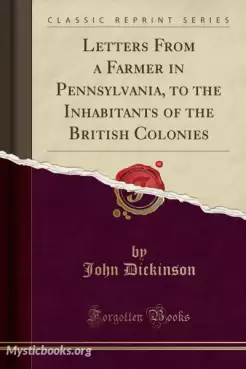
Timeline
Title
Country/Nationality
John Dickinson
John Dickinson a Founding Father of the United States, was a solicitor and politician from Philadelphia, Pennsylvania, and Wilmington, Delaware, known as the "Penman of the Revolution" for his twelve Letters from a Farmer in Pennsylvania, published individually in 1767 and 1768. As a member of the First Continental Congress, where he was a signee to the Continental Association, Dickinson drafted most of the 1774 Petition to the King, and then, as a member of the Second Continental Congress, wrote the 1775 Olive Branch Petition. When these two attempts to negotiate with King George III of Great Britain failed, Dickinson reworked Thomas Jefferson's language and wrote the final draft of the 1775 Declaration of the Causes and Necessity of Taking Up Arms. When Congress then decided to seek independence from Great Britain, Dickinson served on the committee that wrote the Model Treaty and then wrote the first draft of the 1776–1777 Articles of Confederation and Perpetual Union. Dickinson later served as president of the 1786 Annapolis Convention, which called for the Constitutional Convention of 1787. Dickinson attended the convention as a delegate from Delaware and signed the United States Constitution.
He also wrote "The Liberty Song" in 1768, was a militia officer during the American Revolution, president of Delaware, president of Pennsylvania, and was among the wealthiest men in the British American colonies. Upon Dickinson's death, President Jefferson recognized him as being "Among the first of the advocates for the rights of his country when assailed by Great Britain whose 'name will be consecrated in history as one of the great worthies of the revolution.'"
Together with his wife, Mary Norris Dickinson, he is the namesake of Dickinson College, as well as of the Dickinson School of Law of Pennsylvania State University and the University of Delaware's Dickinson Complex. John Dickinson High School was opened/dedicated in 1959 as part of the public schools in northern Delaware.
Dickinson was born at Croisadore, his family's tobacco plantation near the village of Trappe in Talbot County, Province of Maryland. He was the great-grandson of Walter Dickinson who emigrated from England to Virginia in 1654 and, having joined the Society of Friends, came with several co-religionists to Talbot County on the eastern shore of the Chesapeake Bay in 1659. There, with 400 acres (1.6 km2) on the banks of the Choptank River, Walter began a plantation, Croisadore, meaning "cross of gold." Walter also bought 800 acres (3.2 km2) on St. Jones Neck in what became Kent County, Delaware.
Dickinson was educated at home by his parents and by recent immigrants employed for that purpose. Among them was the Presbyterian minister Francis Alison, who later established New London Academy in Chester County, Pennsylvania. Most important was his tutor, William Killen, who became a lifelong friend and who later became Delaware's first chief justice and chancellor. Dickinson was precocious and energetic and in spite of his love of Poplar Hall and his family was drawn to Philadelphia.
At 18, he began studying law under John Moland in Philadelphia. There he made friends with fellow students George Read and Samuel Wharton, among others. By 1753, he went to London for three years of study at the Middle Temple. He spent those years studying the works of Edward Coke and Francis Bacon at the Inns of Court, following in the footsteps of his lifelong friend, Pennsylvania Attorney General Benjamin Chew, and in 1757 was admitted to the Pennsylvania bar beginning his career as barrister and solicitor.
Dickinson died at Wilmington, Delaware, and was buried in the Friends Burial Ground. Shortly before his death he unconditionally freed all of his slaves. While he had been economically reliant on them, he also wanted slavery to end. By freeing all of his slaves upon his death, he thought this would contribute to the United States of America having a future without slavery. Like many of the founders he believed slavery would die "a natural death."
Books by John Dickinson

Letters from a Farmer in Pennsylvania
Letters from a Farmer in Pennsylvania is a series of essays written by the Pennsylvania lawyer and legislator John Dickinson and published under the pseudonym "A Farmer" from 1767 to 1768. The twelve letters were widely read and reprinted throughout...